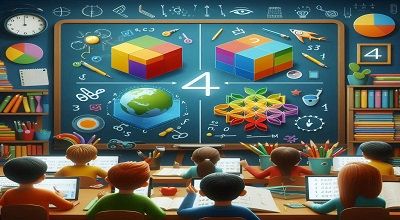4 Cs in Education
The 4 Cs are not a commonly known framework specifically designed for improving math skills. However, several well-known strategies and principles can contribute to enhancing math skills. These may not align exactly with the 4 Cs, but they provide a solid foundation for effective math learning. The 4 Cs typically refer to critical thinking, creativity, communication, and collaboration, which are essential skills but not specifically tailored for math improvement.
If you are looking for a framework to enhance math skills, you might consider the following principles:
Conceptual Understanding:
- Focus on understanding the underlying concepts rather than memorizing procedures.
- Ensure a solid grasp of foundational concepts before moving on to more advanced topics.
Critical Thinking:
- Encourage problem-solving and critical thinking skills.
- Pose real-world problems that require mathematical reasoning.
Consistent Practice:
- Regular and consistent practice is crucial for reinforcing mathematical skills.
- Solve a variety of problems to reinforce concepts and develop problem-solving strategies.
Customized Learning:
- Recognize individual learning styles and tailor instruction accordingly.
- Use diverse resources, such as visual aids, interactive tools, and real-world applications.
Collaboration:
- Encourage peer-to-peer learning and collaborative problem-solving.
- Discussing mathematical concepts with peers can provide different perspectives.
Communication:
- Articulate mathematical ideas clearly, both verbally and in writing.
- Use language effectively to explain solutions and reasoning.
Creativity:
- Foster creativity in problem-solving approaches.
- Encourage thinking “outside the box” and exploring multiple methods for solving a problem.
Continuous Feedback:
- Provide constructive feedback to identify strengths and areas for improvement.
- Use assessments as tools for ongoing learning and adjustment.
Finally, effective math learning involves a combination of these principles. It’s important to create an environment that supports the development of mathematical skills while also nurturing critical thinking, creativity, communication, and collaboration.
